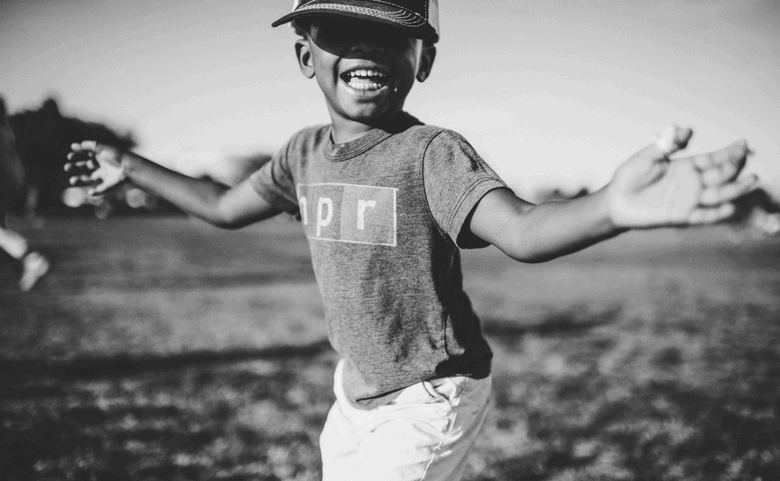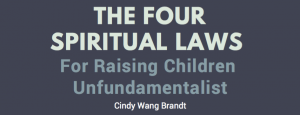
Should We Teach Children to Turn the Other Cheek?
June 25, 2018
Photo: Unsplash

No!! We can’t teach our children to be a doormat, that leaves them vulnerable to abuse and doesn’t equip them with tools to stand up for themselves.
Yes!! Revenge only destroys our own soul and we need to raise children into a world where we honor the humanity in one another. Plus, Jesus!
Maybe?! Depending on whether our children are in a stuck in a violent, abusive situation, and depending on how we interpret this particular section of the Sermon on the Mount, with nuance and compassion and wisdom we can apply the principles into our child-rearing accordingly?
There is a lot of confusion in our minds when we attempt to answer this question, but it shouldn’t be hard. This is one of the most famous passages, and a central driving principle behind not just Jesus’ life and teachings, but also some of the most revolutionary heroes of human history, such as Gangdhi and Nelson Mandela and Martin Luther King Jr. Why aren’t we able to, off the top of our heads, know how to pass on this value to children?
It’s because the theologians and faith leaders who form our thinking are mostly white men, who spend their days in ivory towers and pulpits and speaking circuits, and not getting down on the floors with young children at the playground, crying from having just been bullied by the slightly older kid on the swings.
We don’t do theological thinking from the perspective of a child. We still operate from a framework of imposing doctrine on children, rather than supporting the structures in their environment in such a way that they can engage in spiritual play and learning from their own intuition.
Have you ever noticed how children will fight like cats and dogs, stinging words and swinging fists, and within moments, are able to hold hands and go merrily about their play again? What is that? Is that a higher form of enlightenment and super reconciliation powers? How are they able to fight and come together again and no one had to turn any cheeks?
As a parent, I’ve made so many mistakes and my children forgive it, over and over and over again. This gives me the conviction that possibly we can learn more about forgiveness from a 4 year old than what even Walter Wink can teach us. I want to know how to love and forgive, and to tell the truth about the naked emperor like a child. Theology, as is often true, is done best from the margins, including vulnerable children.
But for people of faith who value the powers of forgiveness and non violent resistance, the question remains: should we teach children these values?
My answer is no, and here’s why:
The core of my faith parenting philosophy is to honor a child’s agency. As much as I want to raise children into kindness, compassion, generosity, wisdom, and integrity, I recognize that I cannot force them to be this person, the best I can do is to model it, believe it within them and call them into living the best version of themselves.
To teach a child a doctrine or command they must follow, especially one as highly contextual and open to misinterpretation as turning the other cheek, is to take too high of a risk. Every child develops differently and we cannot know for certain whether a child is ready, emotionally and spiritually, to internalize concepts of non violent resistance, and the risk of them misinterpreting is to lend themselves vulnerable to receiving abuse with confusion and diminishing of their own power.
Forgiveness and non violence is only meaningful and effective if it is internally motivated. Our primary task, especially during their younger years, is to find ways to bolster that agency—supporting them in drawing their boundaries. If someone violates their physical boundary, hitting, for example, we give them tools to say no, stop, walk away, tell an adult, or other solutions that will effectively make the boundary violator honor their boundary.
When they are old enough and have sufficient confidence and self agency, which again, will vary according to age and how much they’ve been raised to have their boundaries respected, then they can decide if they want to extend forgiveness, or to engage in nonviolent resistance, or not.
I don’t think we should be in the business of requiring children to forgive their abusers. Not when they’re 5 years old, or 10, or 50.
The truth is, I believe if we can succeed in empowering a child to draw healthy boundaries from a robust self agency, they will have a heart soft enough that they’ll inevitably get terribly hurt in this often unkind world, but also, they will have a heart so free they have the capacity to rise up from their pain and reflect love back to even those who hurt them.
Sign up for my parenting emails and get the four alternative spiritual laws:
http://eepurl.com/cMmHmD
Join us at Raising Children Unfundamentalist Facebook Group
Follow Parenting Forward
